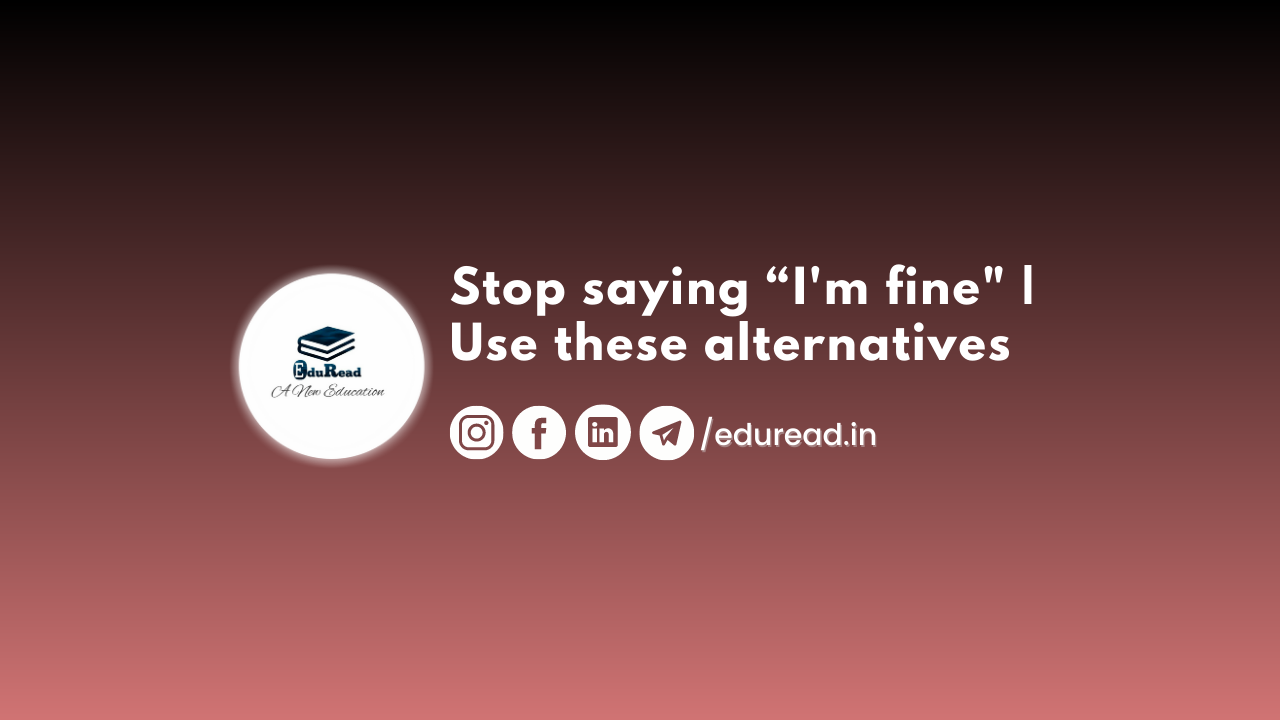How many times have you been asked how you are doing, only to respond with “I’m fine” out of habit? While this may seem like a harmless response, it can actually be detrimental to our mental health and relationships. In this blog post, we’ll explore about stop saying “I’m fine” isn’t always the best option and provide some alternatives to help you express your true feelings.
Why Saying “I’m Fine” Isn’t Always Helpful
There are many reasons why saying “I’m fine” may not be the best option. Firstly, it’s often used as a way to avoid discussing our problems or feelings. By saying “I’m fine,” we give the impression that we don’t want to talk about our issues, which can hinder our ability to seek help and support from others.
Secondly, saying “I’m fine” can be a form of emotional dishonesty. By pretending that everything is okay when it isn’t, we are denying ourselves and those around us the opportunity to address the real issues at hand. This can lead to increased stress and anxiety, as well as strain on our relationships.
Finally, saying “I’m fine” can also be a symptom of a larger issue. If you find yourself saying it all the time, it may be a sign that you are struggling with your mental health and need to seek professional help.
Alternatives to Saying “I’m Fine”
So, what can we say instead of “I’m fine”? Here are some alternatives to consider:
- “I’m okay, but…”
This response acknowledges that you are not entirely okay, but also indicates that you are open to discussing the issue further.
- “I’m feeling a bit down/anxious/stressed…”
By expressing your specific feelings, you can open up a conversation about what is causing them and how you can address them.
- “It’s been a tough day/week/month…”
This response allows you to acknowledge that you are struggling without going into detail about your issues.
- “I’d rather not talk about it right now, but thanks for asking.”
This response sets a boundary while still showing appreciation for the other person’s concern.
- “I could use a little support/encouragement right now.”
This response indicates that you are in need of some assistance or validation from those around you.
The Importance of Being Honest About Our Feelings
It’s important to remember that it’s okay to not be okay. By being honest about our feelings, we give ourselves and those around us the opportunity to address the real issues at hand. This can lead to improved mental health, stronger relationships, and increased overall well-being.
Additionally, by using alternatives to “I’m fine,” we can break down the stigma surrounding mental health and create a culture of open and honest communication. This can help to reduce the shame and isolation that often accompany mental health issues.
Conclusion
In conclusion, saying “I’m fine” may seem like an easy response, but it can actually be harmful to our mental health and relationships. By using alternatives to express our true feelings, we can open up honest and meaningful conversations that lead to improved well-being and stronger connections with those around us. So, the next time someone asks how you are doing, try using one of these alternatives and see how it can change the conversation for the better.
Follow Us for more such content to improve your speaking skills:
To know more, check out here: https://eduread.in/public-speaking-exercise-for-better-speech-speak-new-york/
And visit us for more.
